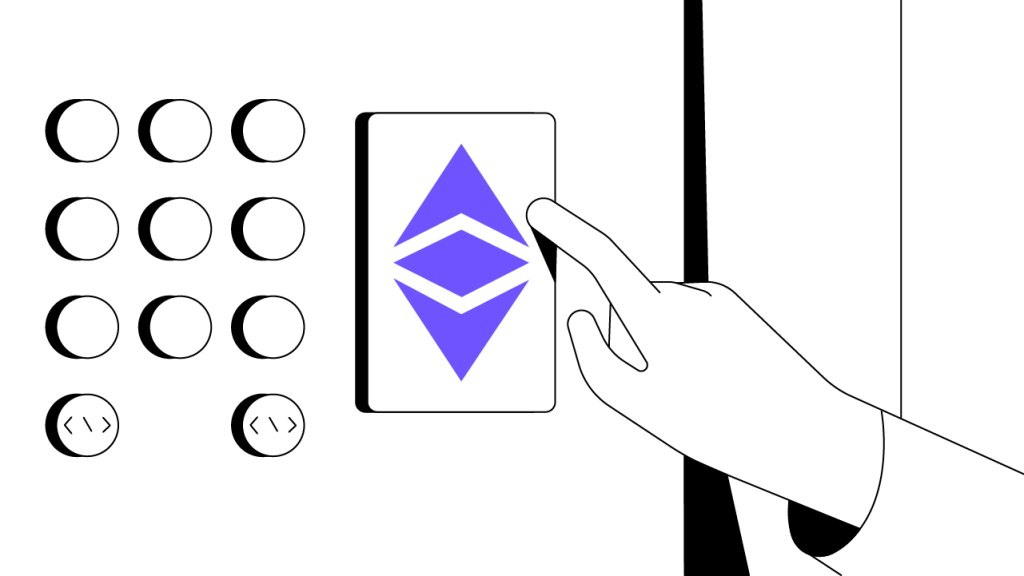Admis Asia: Insights into the Dynamic Asian Market
Exploring the latest trends and developments across Asia.
ETH: Where Code Meets Currency
Discover how ETH is revolutionizing finance by merging code and currency. Unlock insights, trends, and innovations in the crypto world!
Understanding Ethereum: The Technology Behind the Currency
Ethereum is a decentralized, open-source blockchain platform known for its smart contract functionality. Launched in 2015 by Vitalik Buterin and others, Ethereum allows developers to build and deploy decentralized applications (dApps) on its blockchain. Unlike Bitcoin, which primarily serves as a digital currency, Ethereum's architecture is designed to enable a wide array of decentralized services, ranging from finance and gaming to social networking. This flexibility has led to a surge of innovation in the blockchain space, evidenced by the rapidly growing ecosystem of tokens and projects built on Ethereum.
At the core of Ethereum's technology is the Ethereum whitepaper, which outlines its unique consensus mechanism and the concept of smart contracts—self-executing contracts with the terms of the agreement directly written into code. These smart contracts automatically execute transactions and agreements without the need for intermediaries, reducing the potential for fraud and increasing efficiency. Furthermore, Ethereum 2.0 aims to enhance the platform's scalability and security through a transition from a proof-of-work (PoW) to a proof-of-stake (PoS) consensus model. This upgrade is crucial for supporting the growing demand for decentralized applications and expanding Ethereum's functionality.

How Smart Contracts Are Revolutionizing Transactions in ETH
Smart contracts are a pivotal innovation in the realm of Ethereum, transforming traditional transaction methodologies into automated, secure processes. By running on the Ethereum blockchain, these self-executing contracts ensure that the terms of an agreement are directly coded into lines of computer code, eliminating the need for intermediaries. This not only enhances transaction efficiency but also significantly lowers costs associated with transaction fees and execution times. As more organizations and developers recognize the benefits of smart contracts, we are witnessing a burgeoning ecosystem that is set to disrupt various industries, including finance, real estate, and supply chain management.
The impact of smart contracts on transactions goes beyond mere automation; it introduces a new level of trust and transparency in processes. By utilizing blockchain’s decentralized nature, these contracts ensure that all parties involved have access to the same information, reducing the potential for fraud and disputes. For example, a real estate transaction can be executed seamlessly using smart contracts, where property transfer happens automatically when certain conditions are met, without needing a notary or solicitor. This revolutionary approach not only streamlines interactions but also instills greater confidence in the validity of transactions, heralding a new era in Ethereum-based exchanges.
What Makes Ethereum Different from Bitcoin?
Ethereum and Bitcoin are both prominent cryptocurrencies, but they serve different purposes and operate on distinct underlying technologies. Bitcoin, created in 2009 by an anonymous entity known as Satoshi Nakamoto, was primarily designed as a digital currency for peer-to-peer transactions. Its primary focus is on security and a decentralized payment system. In contrast, Ethereum was proposed by Vitalik Buterin in 2013 and launched in 2015, introducing a platform that enables developers to create and deploy smart contracts and decentralized applications (dApps). This fundamental difference creates unique use cases, making Ethereum more versatile than Bitcoin.
Another distinction lies in their consensus mechanisms. Bitcoin uses Proof of Work (PoW) to validate transactions, which requires significant computational power and energy consumption. Ethereum, on the other hand, has transitioned to a Proof of Stake (PoS) mechanism with the Ethereum 2.0 upgrade, allowing users to validate transactions based on the number of coins they hold. This shift not only enhances security but also promotes sustainability, as PoS is generally more energy-efficient than PoW. Thus, while both cryptocurrencies share blockchain technology, their foundations and approaches to consensus clearly highlight what makes Ethereum different from Bitcoin.